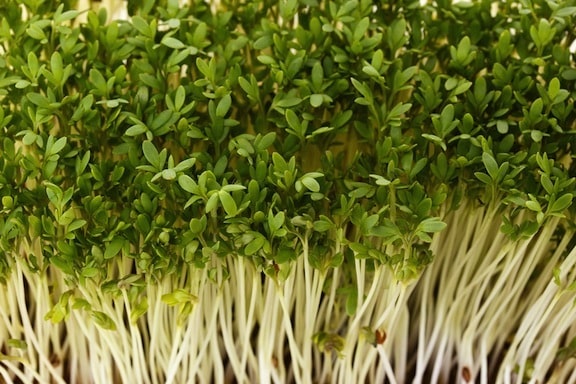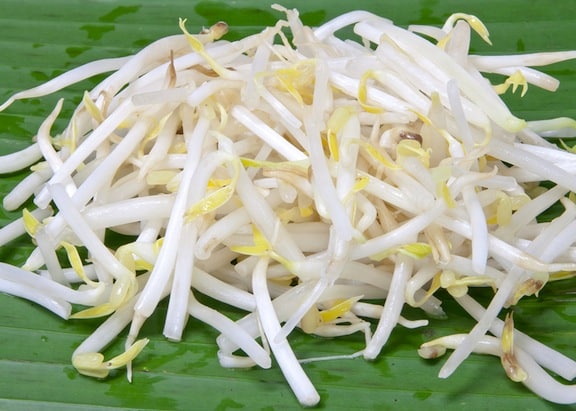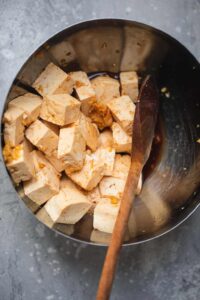Have you heard? The National Cancer Institute, a member of the U.S. National Institutes of Health, recommends consuming 5 portions of fresh fruits and vegetables everyday. And they recommend sprouts as a good way to help you achieve that goal. We'll explore the many healthy benefits of sprouts here; they're also easy to grow at home.
Sprouts are unique in that they are the only form of agriculture available in all four seasons that can be locally grown—-and that means anywhere in the world, from Africa to Alaska! Their harvest cycle, from seed to salad, is only one week. Not only that, one pound of alfalfa seed, for example, yields 10-14 pounds of fresh “mini-salad” greens.
A surprisingly good source of protein
Even though it grows in a week, this kind of fast food doesn’t sacrifice any nutrition. Alfalfa, sunflower, clover and radish sprouts are all about 4% Protein. Compare that to spinach - 3%, romaine lettuce -1.5%, iceberg lettuce- 0.8%, and milk -3.3%.
These foods compare well because they are all approximately 90% water. But meat and eggs are the traditional protein foods for Americans. Meat is 19% and eggs are 13% protein and 11% fat. Compare that to soybean sprouts with 28% and lentil and pea sprouts at 26% protein. Soybeans sprouts have twice the protein of eggs and only 1/10 of the fat. Alfalfa sprouts are also one of the best green foods you can eat. They have more chlorophyll than spinach, kale, cabbage, or parsley.
Beneficial fats
Sprouts are not just salads. Grain and nut sprouts, such as wheat and sunflower, are rich in fats. While fats in flour and wheat germ have a reputation for getting rancid quickly (stores should refrigerate them), fats in sprouts last for weeks.
The valuable wheat germ oil in wheat sprouts is broken down into its essential fatty acid fractions over 50% of which is the valuable Omega 6. While sunflower oil is our finest source of omega 6, germination of the sunflower sprout micellizes the fatty acids into an easily digestible, water soluble form saving our body the work of breaking it down and also protecting us against rancidity. Sunflower sprouts are also popular for its crispness and nutty flavor.
A multitude of vitamins
Need a good multi-vitamin? Eat more sprouts. Radish sprouts have 29 times more vitamin C than milk (29 mg vs 1 mg) and 4 times the vitamin A (391 IU vs 126). These spicy sprouts have 10 times more calcium than a potato (51 mg vs. 5 mg) and contain more vitamin C than pineapple.
While mature radishes contain 10 IU/100g of provitamin A, the radish sprout contains 391 IU - 39 times more vitamin A! This is the miracle of germination. Sprouts are a veritable vitamin factory!
Amazing Phytochemicals
Alfalfa, radish, broccoli, clover and soybean contain concentrated amounts of phytochemicals (plant compounds) that can protect us against disease. Plant estrogens in sprouts function similarly to human estrogen but without side effects. They increase bone formation and density, prevent bone breakdown (osteoporosis) and are helpful in controlling hot flashes, menopause, PMS and fibrocystic breasts tumors. Canavanine, an amino acid analog present in alfalfa, has demonstrated resistance to pancreatic, colon and leukemia cancers in vitro.
Johns Hopkins University School of Medicine researchers found substantial amounts of glucosinolates and isothiocyanates in broccoli sprouts which are very potent inducers of phase 2 enzymes that protect cells from going malignant. Broccoli sprouts actually contain 10-100 times higher levels of these enzymes than does the mature vegetable.
Saponins and cholesterol
Alfalfa sprouts are also one of our finest food sources of saponins. Saponins lower the bad cholesterol and fat but not the good HDL fats. Animal studies prove their benefit in arteriosclerosis and cardiovascular disease. Saponins also stimulate the immune system by increasing the activity of natural killer cells such as T- lymphocytes and interferon.
The saponin content of alfalfa sprouts multiplies 450% over that of the unsprouted seed. Sprouts also contain an abundance of highly active antioxidants that prevent DNA destruction and protect us from the ongoing effects of aging. It wouldn’t be inconceivable to find a fountain of youth here, after all, sprouts represent the miracle of birth.
What About Salmonella and Sprouts?
In recent years, this super—healthy food made some unhealthy headlines: Alfalfa sprouts contaminated with salmonella bacteria! Salmonella is bad news and unfortunately no food is immune to it. All raw foods carry this risk and that includes fresh fruits and vegetables, which have even more pathogen outbreaks than sprouts. Does this mean you should go on a 100% cooked food diet? No!
According to the Center for Disease Control (CDC), 4 million people contract salmonellosis every year and 93% of these cases are caused by meat, poultry, milk, and eggs. The remaining 7% of cases are from shellfish, fresh fruits, vegetables, and sprouts.
While fruits and veggies are safer than meats, single outbreaks from Mexican cantaloupes and Chilean grapes in the 1990’s each caused over 25,000 cases of salmonella. Compare this to sprouts, which have had a total of under 3,000 cases covering all outbreaks, including e-coli, not in one year, but over the entire 40 year history of the U.S. sprout industry.
No matter how small the risk, you should know that the International Sprout Growers Association, in conjunction with the US Food and Drug Administration (FDA), have set stringent guidelines for the safe production of sprouts. This process starts with clean seed, spot checking of crops, regular sanitizing of equipment, constant monitoring and testing during the growing process including samples examined by independent labs.
In fact, sprout growers now operate some of the cleanest food processing facilities in the food industry. The FDA has recommended that sprouts be chlorinated similar to the chlorination of our municipal waters. This “decontamination” reduces the survival chances of any e-coli or salmonella bacteria to a 0.02% probability. But some sprout growers want to keep their sprouts 100% organic, without using chlorine. New alternatives to chlorination are currently being tested including, exposure to different wavelengths of light, short heat treatments of the raw seeds, and the soaking of seeds in acetic acid (vinegar) and hydrogen peroxide.
No one can guarantee the absence of germs on any food. Food safety is a global problem and one that is partly a creation of an overburdened, complex, international food distribution network. In this worldwide problem of food safety, sprouts are just but a blip on the radar screen.
Take food safety seriously, but keep things in perspective. According to the National Weather Service, lightning strikes 1.29 persons/per million each year. The CDC declares that E. coli contamination from all foods afflicts 1.10 persons/per million each year. Since your chances of getting hit by lightning are slightly greater than contracting e-coli from any food, it is a good bet that the health benefits of the natural foods in your diet far outweigh the risks….especially when you include super-nutritious sprouts.
The health benefits of sprouts are worth getting to know, and they're so easy to grow and use.
©2004 by Steve Meyerowitz. Used by permission.
The late Steve Meyerowitz, known as “Sproutman”, was the author of several books on health, diet, and nutrition including Sprouts the Miracle Food, Sproutman’s Kitchen Garden Cookbook, and Wheatgrass Nature’s Finest Medicine. You can learn more at Sproutman Publications.
- For more ways to stay healthy and go raw, visit VegKitchen’s Raw Vegan Kitchen.
- For lots more features on healthy lifestyle, please explore VegKitchen’s Healthy Vegan Kitchen page.








Diane says
What is the best way to purchase seeds for sprouting?
Nava says
Diane, thought Sproutman is no longer with us, his company lives on and is a reliable source for seeds: https://sproutman.com/ — enjoy!